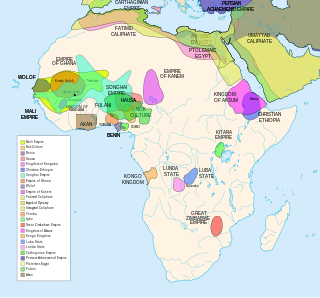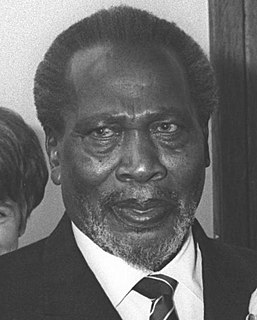 W
WSurvival is the eleventh studio album by Bob Marley and the Wailers released in 1979.
 W
WAfrican century is the belief or hope that the 21st century will bring peace, prosperity and cultural revival to Africa. Among those who have spoken of an African century are South African politicians Thabo Mbeki and Nkosazana Dlamini-Zuma, Chevron CEO David J. O'Reilly, US Treasury Secretary Paul O'Neill and celebrity campaigner Bono. It has also inspired a radical policy journal - African Century Journal founded in 1999.
 W
WAfrican empires is an umbrella term used in African studies to refer to a number of pre-colonial African kingdoms in Africa with multinational structures incorporating various populations and polities into a single entity, usually through conquest.
 W
WAfrocentrism is an approach to the study of world history that focuses on the history of people of recent African descent. It is in some respects a response to global (Eurocentric) attitudes about African people and their historical contributions; it seeks to correct what it sees as mistakes and ideas perpetuated by the racist philosophical underpinnings of western academic disciplines as they developed during and since Europe's Early Renaissance as justifying rationales for the enslavement of other peoples, in order to enable more accurate accounts of not only African but all people's contributions to world history. Afrocentricity deals primarily with self-determination and African agency and is a Pan-African point of view for the study of culture, philosophy, and history.
 W
WPan-African colours is a term that may refer to two different sets of colours:Red, yellow, and green, the colours of the flag of Ethiopia, have come to represent the Pan-Africanist ideology. Numerous African countries have adopted the colours into their national flags, and they are similarly used as a symbol by many Pan-African organisations and the Rastafari movement.Red, black, and green, first introduced by Marcus Garvey in 1920, have also come to represent Pan-Africanism, and are shown on the Pan-African flag. These colours have also been incorporated on national flags, and they have sometimes been used to represent black nationalism rather than Pan-Africanism.
 W
WThe Conseil de l'Entente is a West African regional co-operation forum established in May 1959 by Côte d'Ivoire, Niger, Upper Volta and Dahomey, and joined in 1966 by Togo.
 W
W"Every Race Has a Flag but the Coon" was a song written by Will A. Heelan, and J. Fred Helf that was popular in the United States and the United Kingdom. The song followed the previous success of "All Coons Look Alike to Me", written in 1896 by Ernest Hogan. H. L. Mencken cites it as being one of the three coon songs which "firmly established the term coon in the American vocabulary".
 W
WMaafa, African Holocaust, Holocaust of Enslavement, or Black Holocaust are political neologisms popularized from 1988 onwards and used to describe the history and ongoing effects of atrocities inflicted on African people, particularly when committed by non-Africans which continues to the present day through imperialism, colonialism and other forms of oppression. For example, Maulana Karenga (2001) puts slavery in the broader context of the Maafa, suggesting that its effects exceed mere physical persecution and legal disenfranchisement: the "destruction of human possibility involved redefining African humanity to the world, poisoning past, present and future relations with others who only know us through this stereotyping and thus damaging the truly human relations among peoples".
 W
WMotherland is a 2010 independent documentary film directed and written by Owen 'Alik Shahadah. Motherland is the sequel to the 2005 documentary 500 Years Later.
 W
WThe Pan-African flag—also known as the Afro-American flag, Black Liberation flag, UNIA flag and various other names—is a tri-color flag consisting of three equal horizontal bands of red, black and green. The Universal Negro Improvement Association and African Communities League (UNIA-ACL) formally adopted it on August 13, 1920, in Article 39 of the Declaration of the Rights of the Negro Peoples of the World, during its month-long convention at Madison Square Garden in New York City. Variations of the flag can and have been used in various countries and territories in the Americas to represent Garveyist ideologies.
 W
WPan-Africanism is a cultural and political ideology calling for the unification of the various African communities and their diasporadic counterparts for the purpose of empowering each other. The heights of the movement is primarily characterized in the west by the black nationalist struggles of Marcus Garvey, and the push for greater self determination by W.E.B Du Bois during the early twentieth century. The literature is much vaster once one leaves the western world and enters the African continent, where one can find a consistent effort in much of the territory to unify themselves against the common enemy of Imperialism. Pan-Africanism's influence can be characterized through its contributions to art, media, and politics.
 W
WSenegambia, officially the Senegambia Confederation, was a loose confederation in the late 20th century between the West African countries of Senegal and its neighbour The Gambia, which is almost completely surrounded by Senegal. The confederation was founded on 1 February 1982 following an agreement between the two countries signed on 12 December 1981. It was intended to promote cooperation between the two countries, but was dissolved by Senegal on 30 September 1989 after The Gambia refused to move closer toward union. The Senegambia Confederation should not be confused with the historic Senegambia region, also shortened to Senegambia.
 W
WThe Souls of Black Folk: Essays and Sketches is a 1903 work of American literature by W. E. B. Du Bois. It is a seminal work in the history of sociology and a cornerstone of African-American literature.
 W
WToward the African Revolution is a collection of essays written by Frantz Fanon, which was published in 1964, after Fanon's death. The essays in the book were written from 1952 to 1961, between the publication of his two most famous works, Black Skin, White Masks and The Wretched of the Earth. Fanon expands on the themes of colonization, racism, decolonization, African unity, and the Algerian Revolution in the essays, most of which come from his time writing for El Moudjahid, the official newspaper of the FLN.
 W
WUbuntu is a Nguni Bantu term meaning "humanity". It is sometimes translated as "I am because we are", or "humanity towards others", or in Zulu umuntu ngumuntu ngabantu, in Xhosa, umntu ngumntu ngabantu but is often used in a more philosophical sense to mean "the belief in a universal bond of sharing that connects all humanity".
 W
WThe Uhuru Movement (uhuru is the Swahili word for "freedom") is a socialist and African internationalist movement founded in 1972 and led by the African People's Socialist Party (APSP), whose chairman is Omali Yeshitela. It is centered on the theory of African internationalism, which it says provides a historical materialist explanation for the social and economic conditions of African people worldwide.
 W
W1960 is referred to as the Year of Africa because of a series of events that took place during the year—mainly the independence of seventeen African nations—that highlighted the growing Pan-African sentiments in the continent. The year brought about the culmination of African independence movements and the subsequent emergence of Africa as a major force in the United Nations. These rapid political developments led to speculation and hope about the future of Africa as a whole; yet at the same time, the continent was beginning to face the realities of post-colonial violence. This year also saw the beginning of armed opposition to South African apartheid government, with political ramifications across Africa and around the world. During the year, all colonies of French West Africa and French Equatorial Africa became independent.